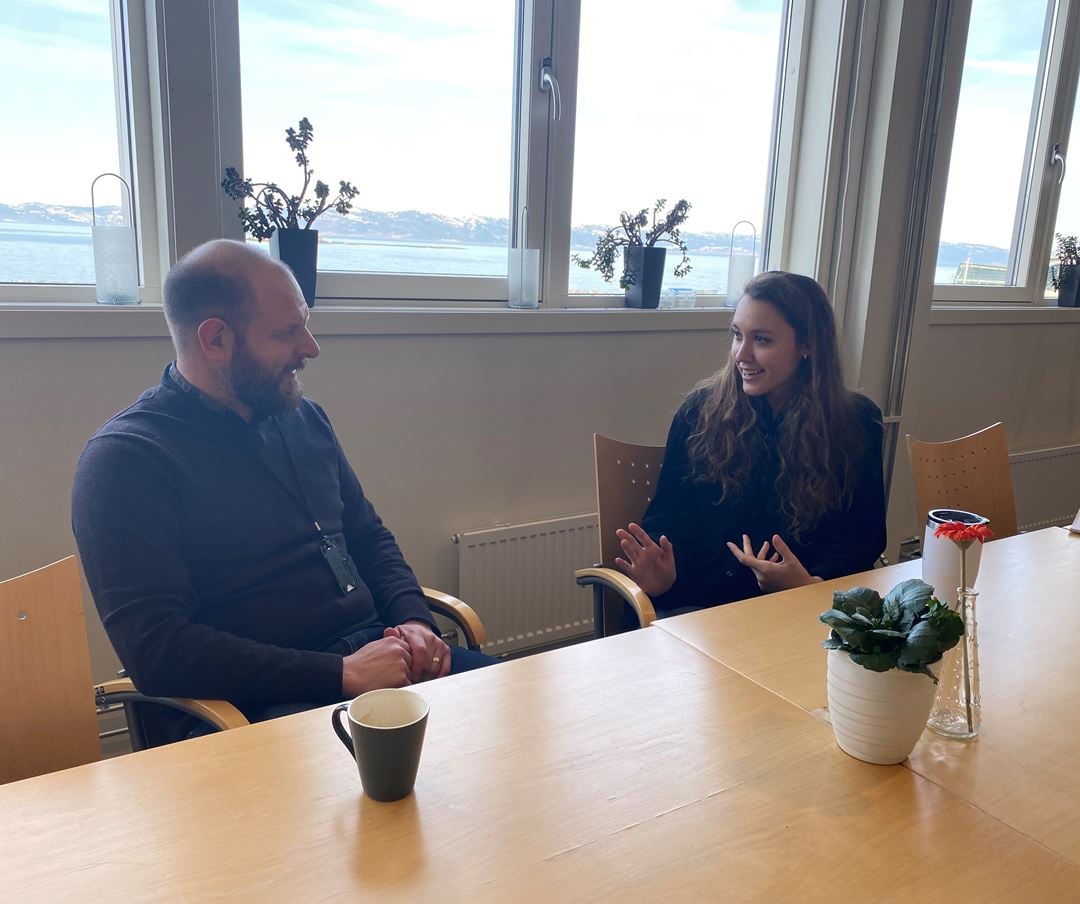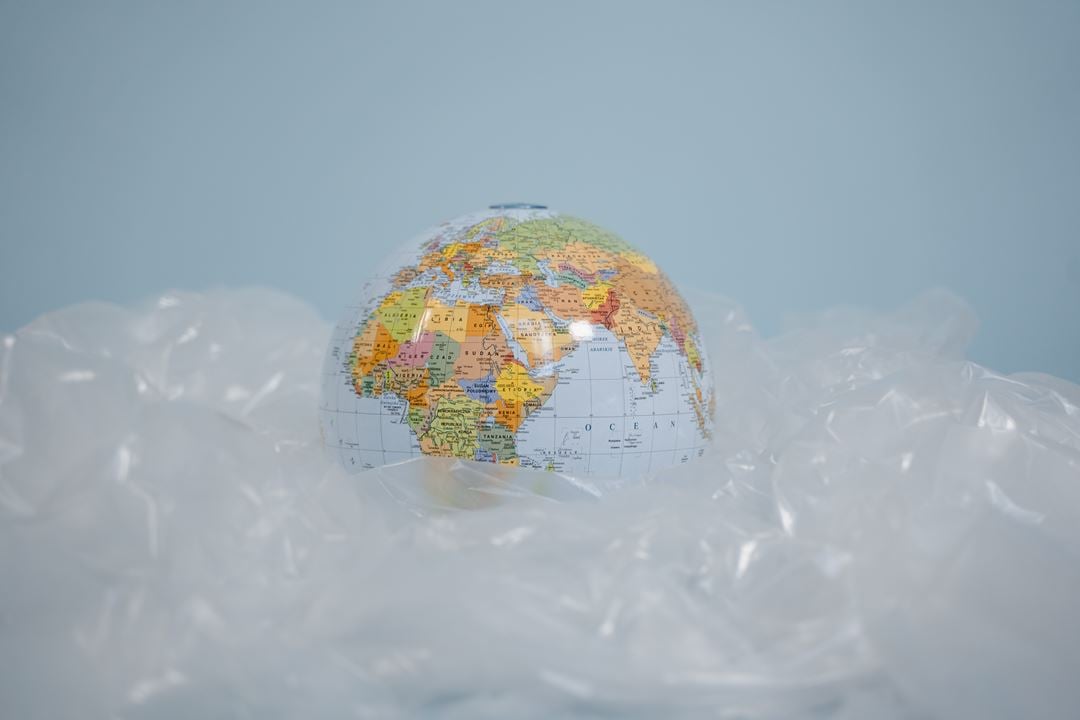Researcher Emily Cowan was present in person representing SINTEF, and after long negotiations, the members reached a resolution to begin discussions for such a treaty.
Though we don’t have a treaty yet, this resolution was a monumental step towards what could become the biggest treaty for the environment since the Paris Agreement.
We’ve sat down with two researchers from SINTEF Ocean, Emily Cowan, researcher specialising in plastic governance and Andy Booth, chief scientist specialising in micro- and nano plastics in the ocean, to get their reflections on this milestone.
In Nairobi the UN member states agreed to start negotiations on a plastics treaty. Why is this so important?
Emily Cowan: This resolution is so important because we need a legally binding treaty on plastics which not only addresses marine pollution, but the full lifecycle of plastics – including production and use. Plastic does not walk into the ocean on their own - they get mishandled on land and so much of it lies in the processes surrounding their management, so we need a treaty that addresses the full life cycle.
The topic of plastics is so high on the agenda right now – we have a lot of average citizens who see plastic on their shores and want their governments to take action. But the less visible danger is that we don’t realise the effects plastics can have on you chemically. As we know, Espen Barthe Eide tested his blood before heading to Nairobi and found harmful traces of plastic exposure known to negatively affect our hormones.
What is it about plastics that can be harmful to us chemically?
Andy Booth: If we take a more holistic view of plastics and consider that it’s not just the polymer, but also the many chemicals that get added, the issue becomes much more complex. A lot of these chemicals associated with plastic get added specifically for the properties they give to the material, but some of these chemicals could be toxic. This is something that’s not been so high on the agenda until now, and the frameworks in place today, such as REACH in the EU, aren’t necessarily able to control what goes into plastic in quite the way we would expect to be able to control chemical usage in the EU.
A global treaty could influence the production of plastics, forcing producers to produce materials without harmful chemicals, and that are more easily recycled. We want to get to the point that we can easily recover the pure polymer from a product that is free from chemicals, so that the recyclate can be used for making any type of product.
The resolution reached at UNEA is a milestone that has been likened to the negotiations of the Montreal Protocol. Why is that?
EC: The way delegates put together a resolution like this so quickly is unprecedented, and the fact that they agreed to begin negotiations is amazing. The resolution we’ve reached now involves such a large number of countries that are agreeing to take these ambitious actions in a legally binding way, and that makes this monumental. When actions aren’t legally binding, they get swept under the rug, but we want to make this like the Montreal Protocol, which focused on restoring the ozone layer. There, nations united together and acted fast, based on science. Even though business and industry were against it because they were large producers of products containing these chemicals, the fact that the actions were made legally binding forced them to pivot.
That’s what we want to see happen here, and once mandated, it will be the biggest treaty for the environment since the Paris Agreement. Thankfully, we are already seeing examples of businesses starting to adapt – which gives me hope that this treaty can be one of the most meaningful ones yet.

The goal of having a treaty in place by 2024 is ambitious. What will we see happening in the coming weeks and months to work towards that?
EC: Unlike past treaties that only meet once or twice a year, here we will be seeing delegates meet more frequently, and there’s going to be a big focus on including the people involved in the issues so as to get this done quicker. This includes all sectors of society, from the scientific community, NGOs and Indigenous groups to business and industry.
AB: Plastics are also a bit different because we are already thinking about and working on the solutions. There’s a huge amount of work and research going on to find improved recycling processes and improved materials, so we're not starting at zero and this might help us get to a resolution faster. This is different than the Montreal Protocol, which was more like starting from scratch when it came to solutions.
EC: But even if it gets agreed upon in 2024, it will still need to be ratified by the different countries, so we won’t see any action for a while. They’ve all had a seat at the negotiations, so we hope they will all agree, but that could be a big hurdle to cross for implementation. For example, the US will have to get the treaty approved through congress, and the US is still a massive consumer and producer of single-use plastic goods, so certain key countries could make this stall. Which is why we need citizens to understand the fight is not over!
Why is having a global agreement on plastics so important, compared with individual nations making their own regulations?
EC: Because plastic is a trans-boundary crisis. We have one ocean and if pollution from one country ends up in the ocean, that can end up across the world. There are high ambitions of monitoring plastic consumption, production and movement, so this is something the treaty will need to include. This is a global problem, not just one country’s problem.
AB: We need regulation because there are some of companies out there that are just looking to make a profit, and who simply jump on the issue of plastics because they know from a marketing perspective that their consumers care about these issues. It is important those companies that have a genuine desire to make positive changes and contributions are recognised. We need accountability on products and what they claim to do, and transparency can help make the most of people’s desire to do good.
Plastic is a wonderful product with so many brilliant use cases, so we can’t think that we’ll ever get rid of it. Rather, the question is how we can manage it better. For example, the plastic that keeps our food fresh needs to be very clean. So how can we ensure that the life cycle of plastics is kept pristine, so that these plastics can also be used for the next generation of food preservation? It’s this circular way of thinking that we need to adopt, while keeping in mind the whole life cycle.
How could such a treaty affect me as a normal citizen?
AB: A lot of people understand that plastics are a problem. They don’t like it and they want to know what they can do to help, but they feel trapped because everything is made of plastic and covered in plastic. We separate the plastics into the recycling bins like good citizens, but then we don’t know what happens to it and we don’t know that our efforts are really making all that much of a difference. Even products marked as bio plastics or biodegradable plastics are surrounded by loads of mis-messaging, because it just isn’t that simple. The same is true with products marked as upcycled – very often they are actually downcycled, meaning they can’t be turned into anything else afterwards, and this is counterproductive to a circular economy.
EC: A treaty could make these things more transparent, so we know more clearly what needs to be done and can take any uncertainty away from the public, so that they can be sure their efforts are worth it.


